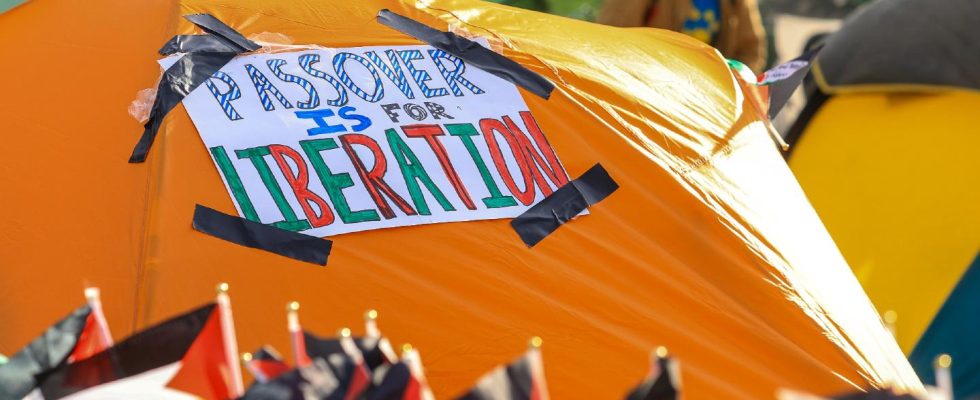The narrative of protesters endangering Jewish students has been used to justify police repression. But at the Columbia encampment, I saw a commitment to confronting antisemitism.
A view of the Gaza Solidarity Encampment at Columbia University in New York City on April 23, 2024.
(Selcuk Acar / Anadolu via Getty Images)
On Wednesday morning, all that was left of the Gaza Solidarity Encampment on Columbia University’s lawn was a patchwork of green and yellowed grasses, marking where tents draped in Palestinian flags and banners had been sitting for the last two weeks. Students had pitched their encampment to draw attention to the university’s complicity with the genocide in Gaza, where the Israeli military has killed more than 34,000 Gazans and an invasion of Rafah—previously declared a “safe zone” by Israel—now appears imminent.
Notwithstanding the hysteria generated by the Columbia administration, New York City Mayor Eric Adams, President Joe Biden, and others, the lawn occupied by students had been quiet, well-organized, and brimming with camaraderie. That is, until Columbia President Minouche Shafik called on the NYPD to descend upon students for the second time in as many weeks.
Current Issue

When a group of students peacefully took over Hamilton Hall this Tuesday—renaming it Hind’s Hall in honor of Hind Rajab, a 6-year-old Palestinian girl killed by the Israeli military—they were answered with a SWAT team and hundreds of armed riot police. Students in front of Hind’s Hall linked arms, singing, “We shall not be moved,” as police moved in with tasers, batons, and flash-bang grenades. One police offer reportedly shot a gun inside the building, which was likely the reason one NYPD member standing outside could be seen texting “thought we fucking shot someone.” Police threw furniture and kicked and shoved students—at least one of whom was unconscious after being pushed down the stairs and denied medical care.
Cameron Jones, a member of Columbia Jewish Voice for Peace (JVP), reported at a press conference the following day that once the cops had cleared Hind’s Hall, they “removed our peaceful encampment on the lawn, destroying our belongings, tents, artwork, and the community where we spent the last 13 days sharing meals, praying, and protesting for liberation.”
In the run-up to the NYPD invasion, the mainstream media often depicted the encampments as unruly, hateful, and antisemitic. President Biden, Mayor Adams, and the Columbia administration willfully repeated this narrative. Indeed, Biden chimed in about the building takeover just hours before the NYPD was called in. Andrew Bates, White House assistant press secretary, said in a statement:
President Biden has stood against repugnant, antisemitic smears and violent rhetoric his entire life. He condemns the use of the term “intifada,” as he has the other tragic and dangerous hate speech displayed in recent days. Forcibly taking over buildings is not peaceful—it is wrong. And hate speech and hate symbols have no place in America.
Since then, the story of protesters endangering and threatening Jewish students has been used to justify the brutal repression that they’ve been met with. But I spent the last week speaking to students across many campus encampments, and last Wednesday I made my way to Columbia’s encampment to get a picture of it for myself. My experience was decidedly different from the story we’ve been fed.
In the middle of the lawn, surrounded by a low buzz of students sitting in study circles, making art, pointing out a hawk that flew nearby, working on laptops, I met Atesh, a Columbia student who asked to be identified only by his first name for fear of reprisal. He told me how meaningful it was for him to participate in his first Passover seder with about 100 other students and professors on the lawn. There, Jewish students had led their peers in songs and rituals. The Passover seder is a Jewish tradition that celebrates liberation and is rooted in community, inquiry, and questioning. It was a fitting celebration for the encampment.
As Atesh was talking to me, another student approached us, looking for a Jewish member of the encampment to connect with. Atesh shrugged and said, “We’re all Jewish. We’re all Palestinian.”
Later that day, I sat on the lawn with nearly 200 students to listen to Jewish students lead a teach-in about antisemitism. Some discussed their experiences growing up in predominantly Christian towns where pennies were thrown at them and conspiracy theories about Jews were ubiquitous. Others shared their impressions of why so many American Jewish communities feel connected to their Israeli counterparts and why conversations about Palestine are difficult to have. A few recounted why their opposition to the current war is rooted in their traditions and observance of Judaism. All of them expressed discomfort at having to take center stage. But they felt an obligation to do so because of the ways in which the “safety of Jewish students” has become a disingenuous rallying cry of everyone from liberal college presidents to MAGA-aligned politicians.
I am an Israeli-born Jew who has been involved in Palestine activism for over 20 years, and I have never experienced the level of solidarity and the depth of understanding about antisemitism that I am seeing across college campuses right now. In the past, I had seen antisemitism only on the fringe of the movement, turning up through an occasional odd and unsettling poster at a protest, summarily dismissed and removed by organizers. At the center of the movement, I always felt welcome and comfortable as an Israeli-born Jew. But, still, until the recent phase of the new movement for Palestine emerged on American campuses last fall, I had never before witnessed such a deliberate commitment to learning about and confronting antisemitism head on.
Yet on the other side of Columbia’s campus, in view of the encampment, House Speaker Mike Johnson held a press conference accusing students of supporting terrorists and of chasing down, mocking, and screaming at Jewish students. Johnson called on the National Guard to intervene and demanded that Columbia’s President Shafik resign for not sufficiently repressing the encampment. “As Columbia has allowed these lawless agitators and radicals to take over,” Johnson called out, “the virus of antisemitism is spreading across other campuses.” Johnson, an evangelical Christian conservative, has ties to a once-fringe evangelical movement affiliated with the New Apostolic Reformation, which holds that Christians have a duty to take control over government, education, and family. They also believe that Zionism, and ultimately the conversion of Jews, will help bring about the apocalypse.
The evangelical Zionists that are not in office have spoken much more freely on social media than Johnson about why they support Israel and oppose student protesters. The Christian nationalist “United for Israel” rally leader Sean Feucht was giddy on a livestream. “Yes, these are the End Days,” he said. “We’re one day closer to returning Jesus, and as that ramps up, we’re going to see a rise of evil, we’re going to see a rise of glory, and we’re going to see a rise of hatred for the Jewish people.”
Needless to say, the mainstream Jewish institutions that have united with right-wing Republicans and evangelical Christian Zionists are only strengthening forces that do not have our best interests in mind. But the more “moderate” calls to shut down student protests have also stoked antisemitism and in so doing endanger Jewish students—regardless of their position on Israel’s war on Gaza.
In the name of fighting antisemitism, college and university administrations have either invited police onto their respective campuses or unleashed their own school law enforcement to repress student encampments and otherwise stifle protests. Disturbing images have surfaced on social media: a middle-aged female professor shoved into the ground by police, snipers at Indiana University pointing weapons at students, riot police on horses facing peaceful protests, police looking on silently as a pro-Israel mob assaulted UCLA students. All this, we’re told, to “keep Jewish students safe.” The Jewish students meant to be safeguarded apparently do not include the many Jews involved in the encampments themselves.
“It is not that they care about Jewish students,” JVP member Maya, told me. “They actually care about Zionist students.” Among those arrested and suspended were many Jewish students, she said. “They do not care about the safety of the Jewish students that are in the camp or that are part of this movement. And they’ve shown that by arresting and by attempting to erase the fact that we even exist.” Anti-Zionist Jews, she explained, “are not part of [the administration’s] fight against antisemitism.”
Beyond physical repression, Jewish students that I spoke with have complained that the entire discussion denigrates actually rising instances of antisemitism and makes them feel less safe as Jews. As one MIT student put it, “The false narratives only make conversations about real antisemitism much more difficult.” He told me that the only anti-Jewish remarks he has ever experienced on his campus came from pro-Israel counterprotesters. One shouted at him, “God made a mistake by having you born a Jew.”
Popular
“swipe left below to view more authors”Swipe →
Moreover, by singling out antisemitism, college administrations and politicians are exceptionalizing Jews. Task forces on antisemitism have been created on campuses, while, on the other hand, protests have been repressed and the harassment endured by Muslim students ignored. At a moment when Arab, Muslim, and pro-Palestine students—Jews among them—are being harassed, doxxed, and assaulted on campuses, college administrations seem to be giving preferential treatment to antisemitism (at least when it’s directed to Zionists) over other oppressions.
Pitting Jews against oppressed groups is a historically dangerous position that Jews are familiar with. Whether in czarist Russia or Nazi Germany, ruling elites blamed Jews as the reason for working peoples’ suffering. More recently, classic tropes about Jews holding power in the media and finance create a convenient conspiracy that undermines unity. Yet the encampment movement developing on campuses around the country stands in stark contrast: providing solidarity, safety, and community for hundreds of students that are participating.
There has certainly been tension and sometimes even physical confrontations between pro-Israel and pro-Palestinian students on campuses. But this is a political, not religious, conflict. Equating Judaism with the state of Israel makes it possible to label all opposition as antisemitic. Thus, any time a student with an Israeli flag is shouted down, this is painted as an act of antisemitism. This conflation has the effect of portraying Jews as a monolithic group that supports the bombing, trapping, and starving of another people.
But at Columbia and other campuses, students are pointing toward an alternative, and taking great personal risks to do so—facing suspensions, arrests, violent threats, and more.
Last Wednesday, I sat in one tent that was being shared by Palestinian American student Maryam Alwan and Shay, a Jewish student who asked that only their first name be used. Alwan and Shay told me that after months of repression and ostracization on campus, at the encampment they feel safe and happy again for the first time. Shay explained that fellow participants have made sure to keep kosher Passover food available at the encampment and to create quiet and respectful spaces for observance of Jewish and Muslim rituals alike.
This is particularly significant, they said, because ever since the administration suspended Columbia’s Jewish Voice for Peace chapter, Jewish students critical of Israel have lost the space to practice Shabbat and other Jewish rituals together. Shay told me, “It’s been really hard to be totally ostracized from the major Jewish institutions at Columbia. This is the first chance I’ve had to really be in a community.”
Students had peacefully pitched tents on campus lawns, obstructing no buildings nor any classes. The accusations that they are in any way targeting Jews fly in the face of the reality on the ground. Even the allegations that the protests have disturbed students in nearby buildings who are trying to study or rest fall flat. The gentle murmurs I witnessed were occasionally punctuated by drum circles, singing, and chanting: a volume that New York City students are certainly accustomed to. In any case, this seems like a negligible discomfort in light of the issues that the students are raising: tens of thousands killed, hospitals rendered useless, and students in Gaza who have been left without a single university, much less a quiet place to study.
Students across campuses are building relationships of mutual respect and solidarity. They’ve remained peaceful, with little conflict until police or counterprotesters appear. Now, Columbia’s encampment and the ones at City College of New York and UCLA have been violently disbanded. And the crackdowns will likely spread. But every student that I’ve spoken to, including those that have been arrested and suspended, have vowed to continue to organize, protest, and build their community.
Indeed, the day after the police attacks on Columbia and City College’s encampments, hundreds gathered at 1 Police Plaza to do jail support, organizing food, water, coffee, and hygiene needs for arrested students. Hundreds more protested at Columbia’s gates, led by Barnard College and Columbia faculty and staff. Professors printed out signs that read: “CU/BC faculty say no war on students.” Thousands protested in Foley Square. And more arrived to City College’s gates for a joint press conference and rally, organized by students at Columbia and City College.
“I feel that with my generation a tide is turning,” Maya told me, a day after the arrests of her fellow students. Campus administrations, she explained, are “grossly miscalculating how willing we are to put our educations and bodies on the line. They think that from UCLA to Columbia, and everywhere in between, that bringing in the police will ruin our spirit and deflate us. All we have seen is the exact opposite. This will not be over until Columbia stops investing in weapons manufacturers that directly bomb and hurt civilians in Gaza.”
Thank you for reading The Nation!
We hope you enjoyed the story you just read, just one of the many incisive, deeply-reported articles we publish daily. Now more than ever, we need fearless journalism that shifts the needle on important issues, uncovers malfeasance and corruption, and uplifts voices and perspectives that often go unheard in mainstream media.
Throughout this critical election year and a time of media austerity and renewed campus activism and rising labor organizing, independent journalism that gets to the heart of the matter is more critical than ever before. Donate right now and help us hold the powerful accountable, shine a light on issues that would otherwise be swept under the rug, and build a more just and equitable future.
For nearly 160 years, The Nation has stood for truth, justice, and moral clarity. As a reader-supported publication, we are not beholden to the whims of advertisers or a corporate owner. But it does take financial resources to report on stories that may take weeks or months to properly investigate, thoroughly edit and fact-check articles, and get our stories into the hands of readers.
Donate today and stand with us for a better future. Thank you for being a supporter of independent journalism.
Thank you for your generosity.
More from The Nation
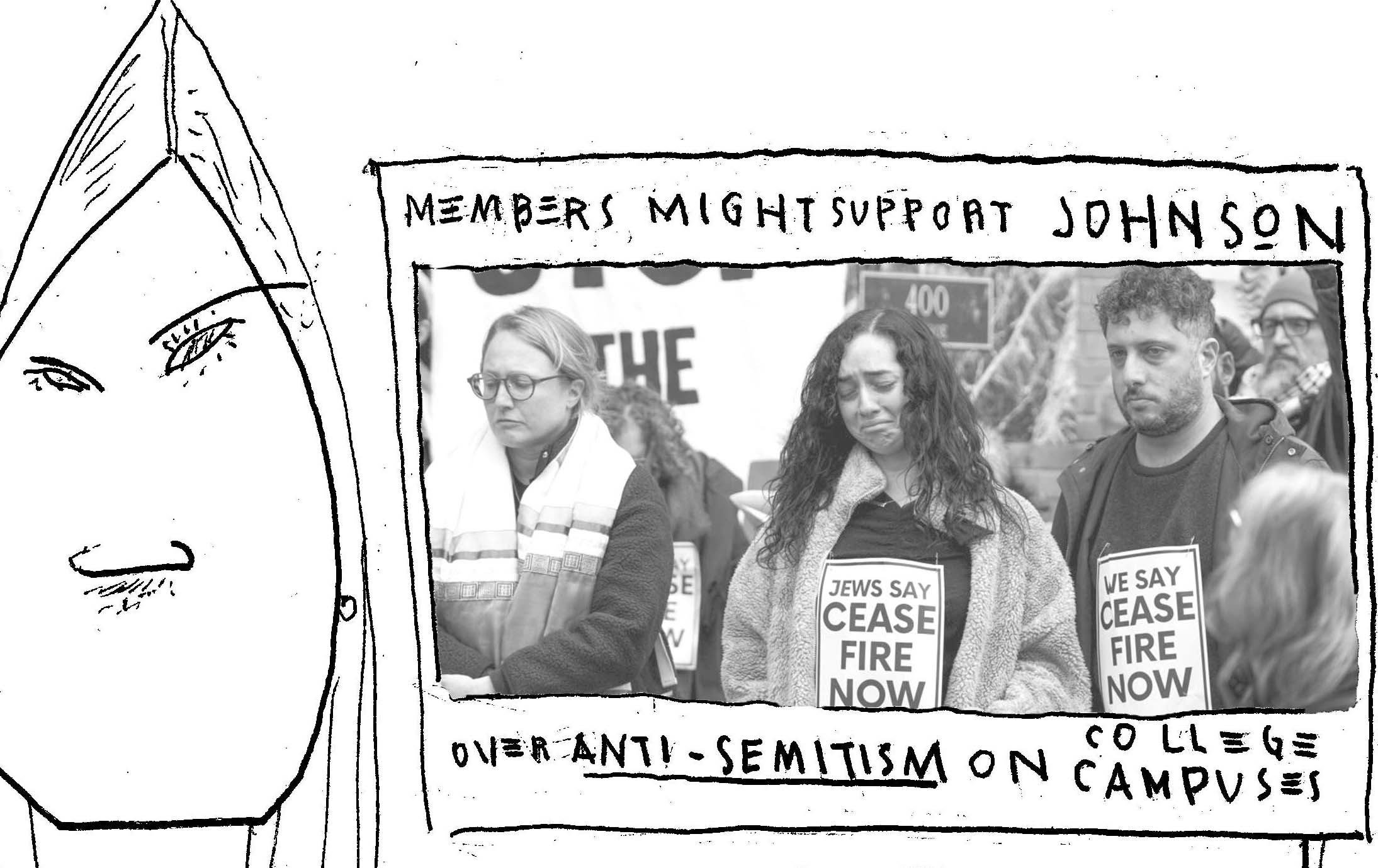
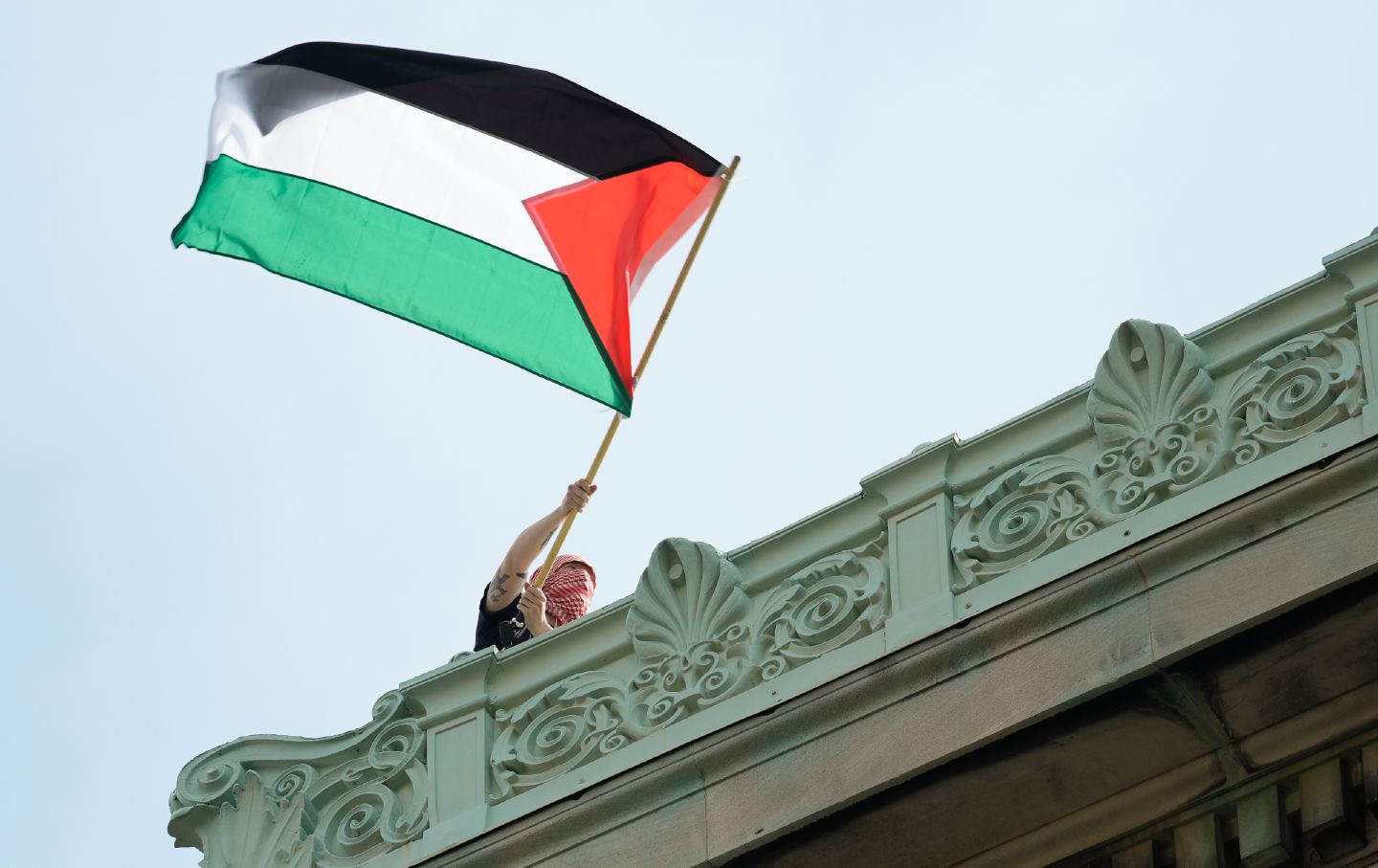
With the “outside agitator” narrative, the media and politicians are puking up the worst of this country’s past.
Dave Zirin
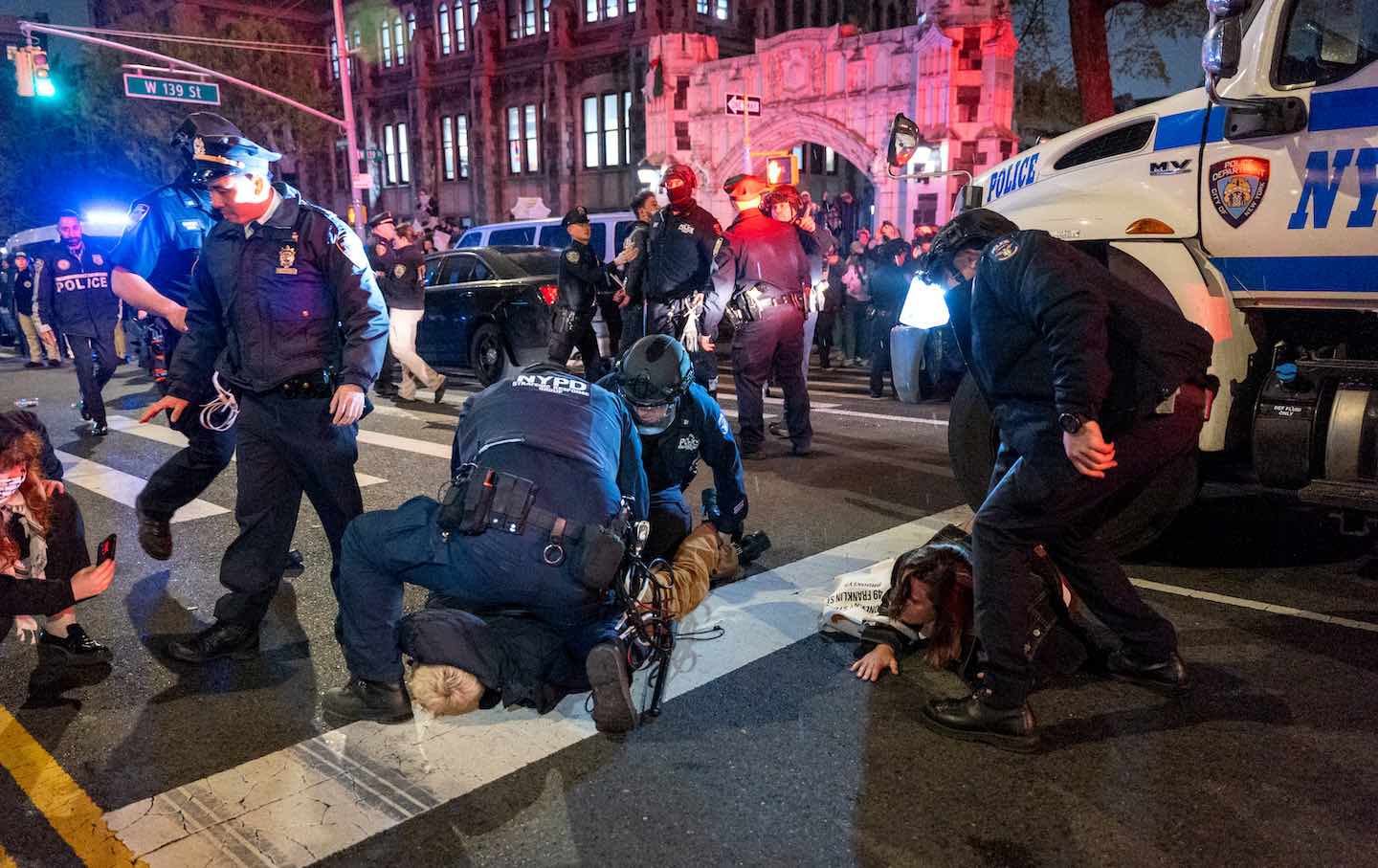
Protesters against US involvement in Israel’s war on Gaza may not always get the details right, but they’re on the right side of history.
Left Coast
/
Sasha Abramsky
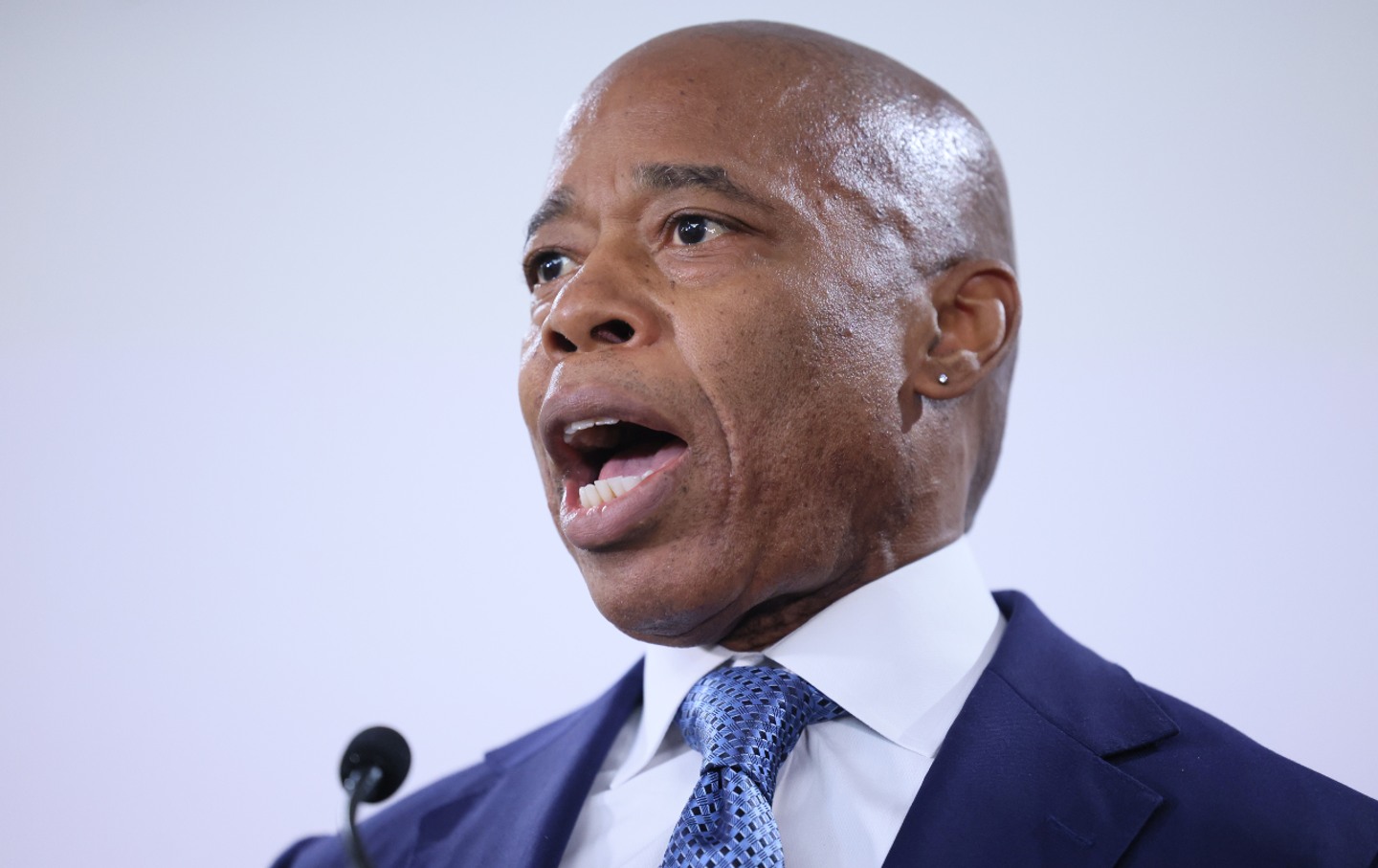
New York’s mayor is the right man for the job of standing up for the indefensible.
Jeet Heer
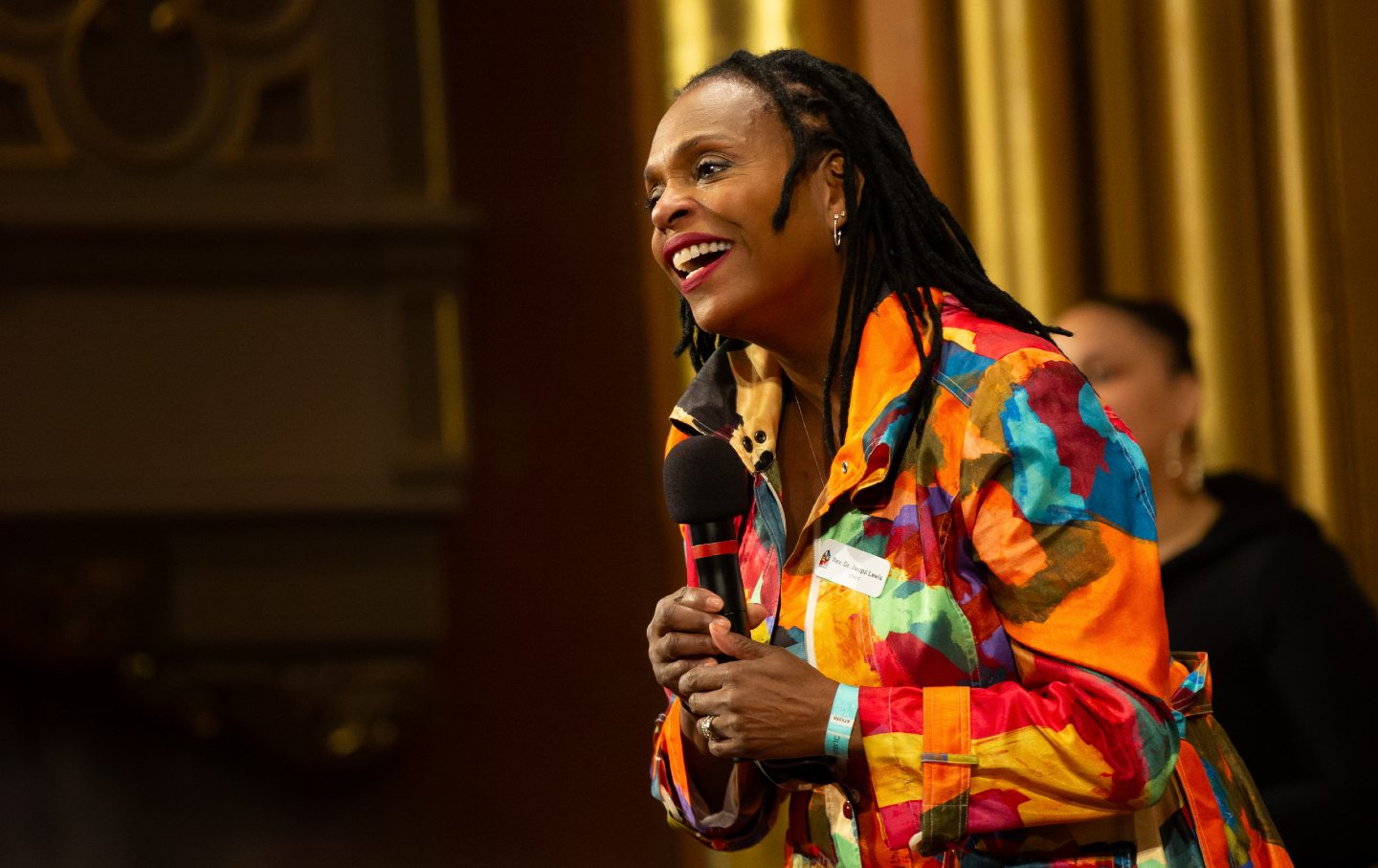
At the Freedom Rising Conference, faith leaders gather to confront the “existential threat to democracy” posed by Trump.
Mark Hertsgaard
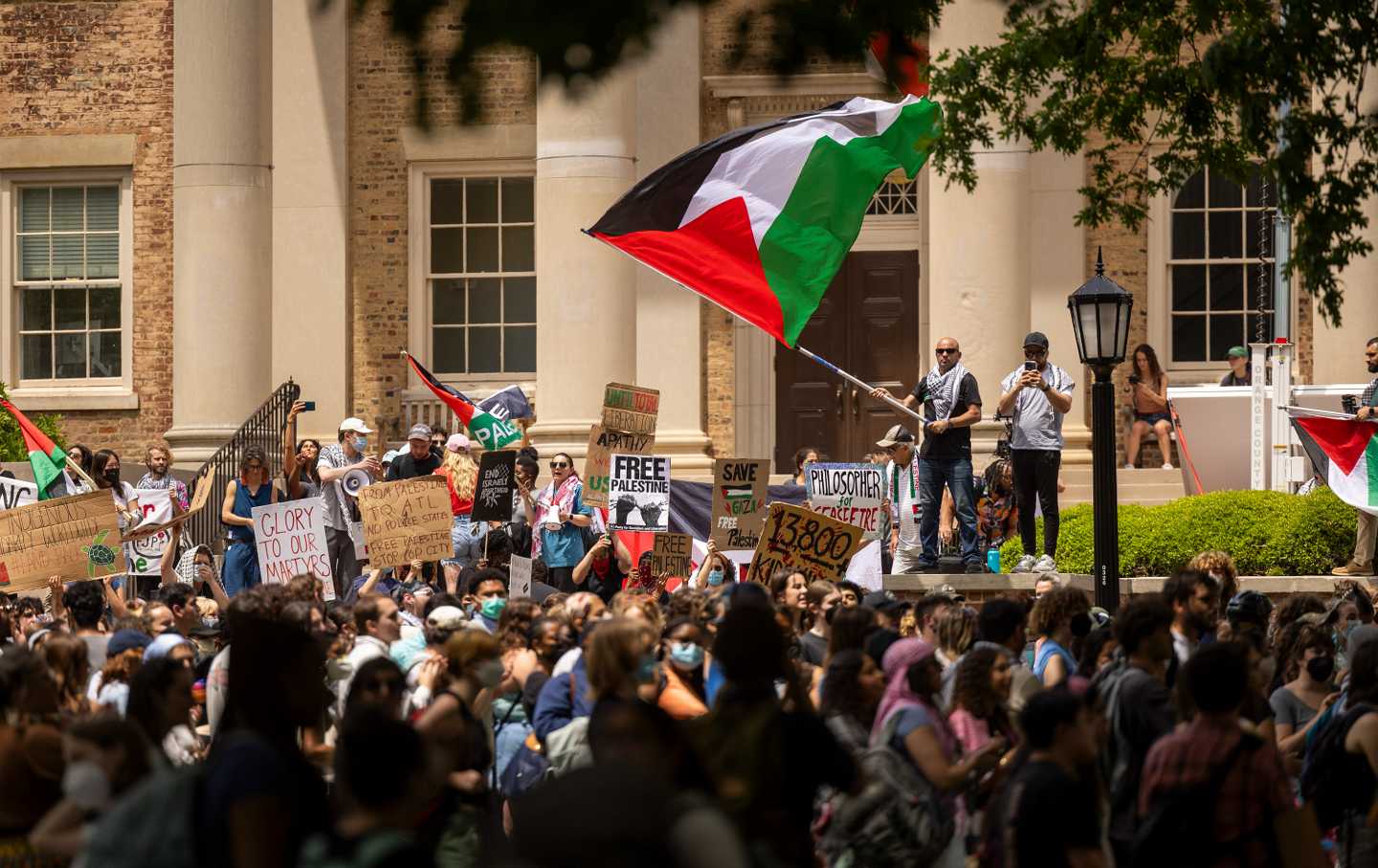
We asked five student writers to talk about the pro-Palestine protests at their schools, how their administrations have responded, and what the next steps are for organizers.
StudentNation
/
StudentNation

